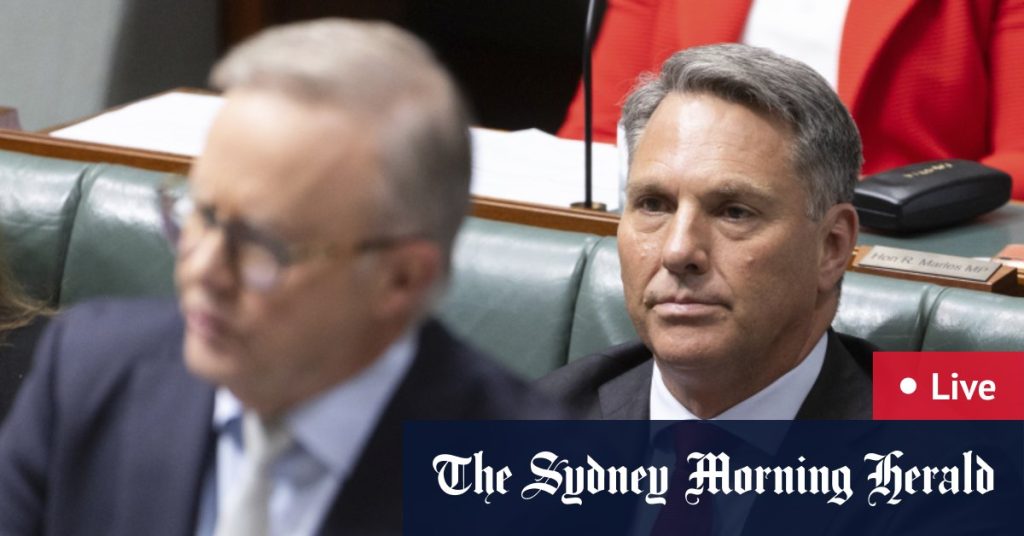In response to claims by the Greens party that the government was “complicit in genocide” due to its exports to Israel, the government has revealed more information about its exports to Israel. The government has refuted these claims and provided details regarding its exports to Israel, aiming to clarify its position on the matter. This development comes amidst heightened tensions and scrutiny surrounding Australia’s trade relationships, particularly in light of ethical concerns and human rights issues.
Additionally, Prime Minister Anthony Albanese has criticized Opposition Leader Peter Dutton for his stance on climate change, comparing him unfavorably to former Prime Minister Scott Morrison. Albanese has accused Dutton of being worse than Morrison on climate change, highlighting the importance of addressing environmental issues and taking action to combat climate change. This criticism sheds light on the political debates and disagreements surrounding environmental policy in Australia, with differing viewpoints on how to effectively address climate change and prioritize environmental protection.
The government’s response to the Greens’ claims and Albanese’s criticism of Dutton highlight the ongoing debates and controversies within Australian politics. These developments reflect the complex and contentious nature of political discourse in the country, with various parties and leaders voicing opposing viewpoints on crucial issues such as trade, human rights, and climate change. The government’s efforts to address criticism and provide transparency regarding its policies and exports demonstrate a commitment to accountability and open communication with the public.
The scrutiny and criticism faced by the government underscore the importance of transparency and accountability in political decision-making. As public awareness and interest in ethical considerations and human rights issues continue to grow, governments are increasingly facing pressure to justify their actions and policies. By responding to allegations and addressing concerns raised by the opposition and other stakeholders, the government can demonstrate its commitment to upholding ethical standards and promoting transparency in its dealings with other countries.
Albanese’s criticism of Dutton on climate change highlights the significance of environmental issues in contemporary politics. Climate change is a pressing concern that requires urgent action and cooperation from governments around the world. By holding leaders accountable and advocating for stronger climate policies, politicians like Albanese are working to address the existential threat posed by climate change and safeguard the future of the planet. This ongoing debate underscores the need for decisive action and collaboration on a global scale to mitigate the impacts of climate change and transition to a more sustainable future.
In conclusion, the government’s response to allegations regarding its exports to Israel and Albanese’s criticism of Dutton on climate change demonstrate the complex and challenging landscape of Australian politics. As debates on trade, human rights, and environmental issues continue to unfold, it is imperative for leaders to engage in open dialogue, address criticisms, and prioritize transparency and accountability in their decision-making. By confronting difficult issues and advocating for change, politicians can work towards a more just and sustainable future for all Australians.













